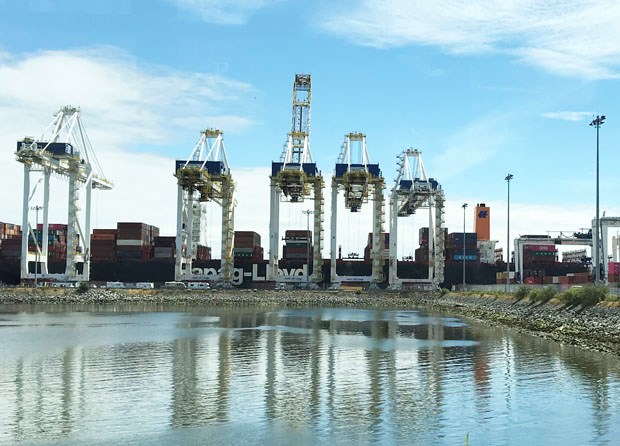Delta could end up with millions more annually in civic coffers if Terminal 2 is given the go-ahead.
The province has long restricted municipalities' ability to set property tax rates for ports they host after a successful lobby effort by the port authority, which claimed municipal taxes impacted port competitiveness.
Delta finance director Karl Preuss told the Optimist there hasn’t been much of a difference between the city tax rate and annual payment rate set by the province, so Delta hasn’t lost much.
He said Delta last year received around $400,000 in payment in lieu of taxes that were applicable only to vacant port lands.
When port properties are occupied by a third party, the tenants pay a tax rate capped by the province. In 2019, Delta is expecting to receive $5.6 million in taxes, Preuss said.
The finance department hasn’t worked out yet what Delta might get if Terminal 2 is built, he said. It’s the Port of Vancouver’s proposed three-berth terminal that would be built on a man-made island adjacent to the Deltaport terminal.
According to the port authority, the volume of shipping containers handled along Canada’s West Coast has grown substantially, necessitating the need for the new facility despite upgrades to current infrastructure.
Despite the potential tax windfall, the City of Delta is saying a proposal by Global Container Terminals, the operator of the three-berth Deltaport container terminal facility, to build a fourth berth should be assessed as a potential alternative to T2.
“In view of the rapidly changing global economy and changes in the marine shipping industry, we need greater assurance that RBT2 is both needed and appropriate to address Canada's trading needs without compromising environmental protections. This means that the Deltaport Fourth Berth proposal, and any other reasonably feasible options, should be formally assessed,” the city’s submission to a federal review panel states.
The Port of Vancouver shot down the GCT proposal, though, saying the Department of Fisheries and Oceans Canada already stated it would not consider any more development on the south side of the causeway due to environmental impacts.
As far as converting other existing port facilities, the port authority says that’s been investigated as well.
“Terminal operators at the Port of Vancouver operate under long-term renewable lease agreements with the Vancouver Fraser Port Authority, and make significant investments in equipment and infrastructure, so the opportunities to convert a terminal to handle containers are restricted. Ultimately, we cannot arbitrarily direct a terminal operator to change its business, and in this case, none were deemed suitable,” the port explained.
“We also determined that terminals on the Fraser River cannot accommodate today’s large container vessels because they cannot safely navigate the river. Further, road connections to terminals on the north shore of Burrard Inlet are not adequate to handle container trucking volumes.”
The review panel is currently conducting its public hearing on T2 that will run throughout May and into June.



